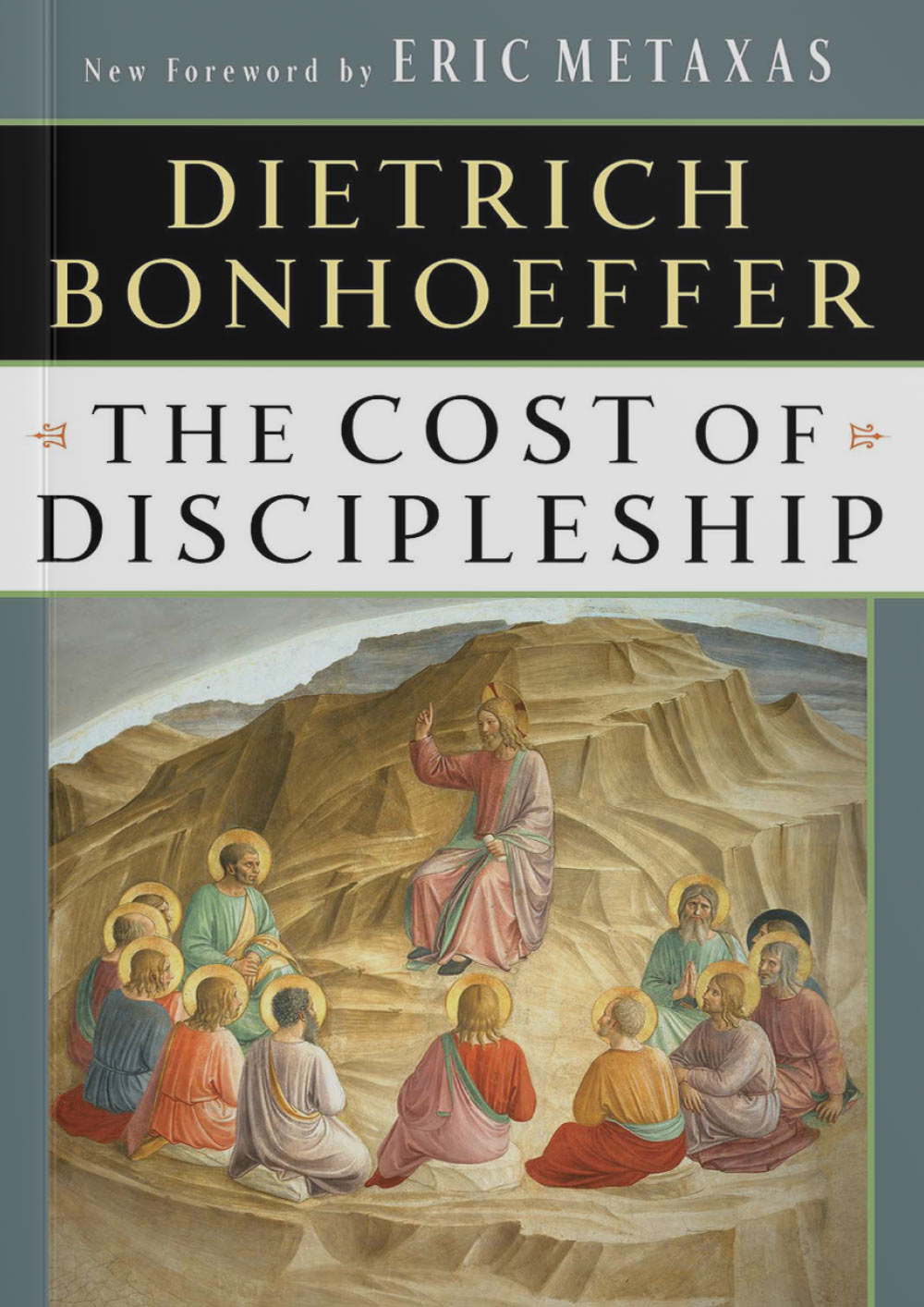The content of The Cost of Discipleship is divided into four sections. The first section focuses on grace and discipleship, including a thorough explanation of “costly grace” as contrasted to the belief of “cheap grace.” The last three portions of the text are an exposition of the Sermon on the Mount, evangelism, and ecclesiology. The content is rich and makes for meaningful and impactful discussions with family and friends. This work is readily available in alternate formats, giving high schoolers the option to use an audio version, which for some learners is a means of greater comprehension. In addition to The Cost of Discipleship, Dietrich Bonhoeffer wrote Life Together: Ethics. His Letters and Papers from Prison were published posthumously.

Create a timeline that incorporates the events of both Dietrich Bonhoeffer’s life and the happenings that took place in the world during his life span. What correlations or significance can be learned from the completed timeline?
Dietrich Bonhoeffer studied the work of Martin Luther. In his cornerstone chapter “Costly Grace,” Bonhoeffer refers to the Reformation and Luther’s role in restoring the gospel. Read the chapter and list five theological principles attributed to him, according to Bonhoeffer.
When Dietrich was in prison, he asked “permission to minister to the sick and to his fellow prisoners, and his ability to comfort the anxious and depressed was amazing.” Volunteer to read to or play games with residents at a local assisted living or children’s home. Document hours as required for any scholarship opportunities.
Daily Bible reading is a means to know more about who Christ was in the lives of others, but also who He is in our lives. Knowing Christ and how he interacted with people and acted in situations provides examples for how we can live our lives. How did Bonhoeffer’s understanding of Christ influence his thoughts and actions, particularly toward other people? Begin a daily Bible reading plan. Invite a friend to join and spend time together discussing what is read and praying for one another.
Another concept attributed to Bonhoeffer is his theological explanation of costly grace, which “recognizes that nothing can be cheap to us which is costly to God.” Ponder this quote as related to the content of the chapter “Costly Grace.” In three paragraphs, explain the meaning of the quote and how its interpretation influences individuals as well as churches.
Christian contemporaries Corrie ten Boom and Dietrich Bonhoeffer aided Jewish believers, sacrificing personal comfort and convenience for the sake of others persecuted during the Holocaust. Write a comparative essay outlining the similarities and differences of the lives of Corrie ten Boom and Dietrich Bonhoeffer.
In early 1945, Bonhoeffer was sought and captured for his involvement in conspiring to assassinate Adolf Hitler. As a result, he was hanged in Flossenburg on April 9, 1945, three weeks before the freeing of the city by the Allies. Some people argue Bonhoeffer went against the theology he preached when he made the choice to conspire against Hitler. Read the chapter entitled “Revenge.” How does Dietrich encourage the reader to deal with enemies and adversity?
The Cost of Discipleship has both a theological and historical significance. Therefore, the reading, analysis, and accompanying activities may count toward credit in English composition, world literature, theology or world history—based on assignment choice, which is left up to the discretion of the parent overseeing the education.

